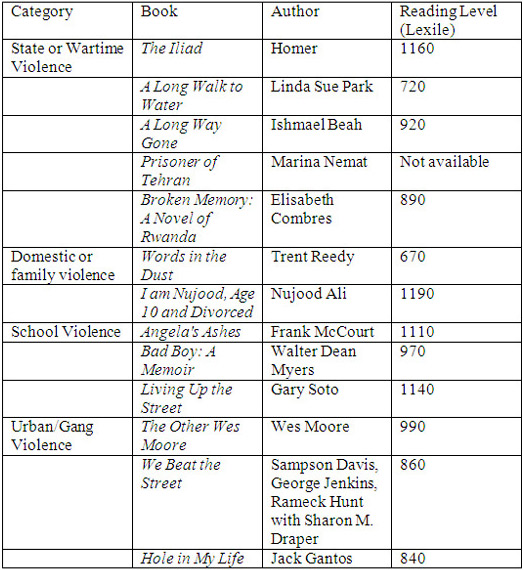The basic premise for this unit is that short texts and excerpts can serve as a model for student writing, as well as a springboard for discussion and analysis. Author Kimberley Hill Campbell provides an excellent argument for this approach in her text
Less is More: Teaching Literature with Short Texts, Grades 6–12
. She devotes a chapter of her book to the genre of memoir. (Although I of course recognize that memoir, autobiography and biography are distinct genres with their own guiding principles, for the purpose of this unit, I will not emphasize those distinctions, with the larger aim of encouraging students to read about other lives in order to write about their own.) Hill Campbell advocates for the use of memoir in that "memoir excerpts are the perfect short text genre since any great memoir has small, stand–alone moments so vivid and compelling they don't require much, if any, contextual explanation."
4
I believe the same argument could be made for some biography and autobiography, as well as historical fiction.
Below, I have included a preliminary list of texts that might be used to illustrate each category of violence. I have included Lexile numbers for the books as they are widely available. These numbers represent the difficulty level of a text. A typical 8
th
grader might read at a level between 805 and 1100. I have tried to include books in this range, as well as slightly below this range for developing readers. This list is in no way comprehensive, but might provide a starting point for teachers of students at many different levels:

Through pre–reading, reading, discussion, and writing activities, students can begin to explore violence on several different levels. While non–fiction (and some historical fiction) texts will be the foundation of our work, the ultimate focus will be on a student–created product that analyzes the role of violence in adolescent lives. This unit would work best in a classroom that employs some variation of the reading/writing workshop model, in which teachers present mini–lessons before allowing students time to work independently. That independent work time will be vital for teacher/student conferences. The reading/writing workshop model also subscribes to the notion of "gradual release" (I do, we do, you do). Using mentor texts and models fits nicely with this instructional mode.